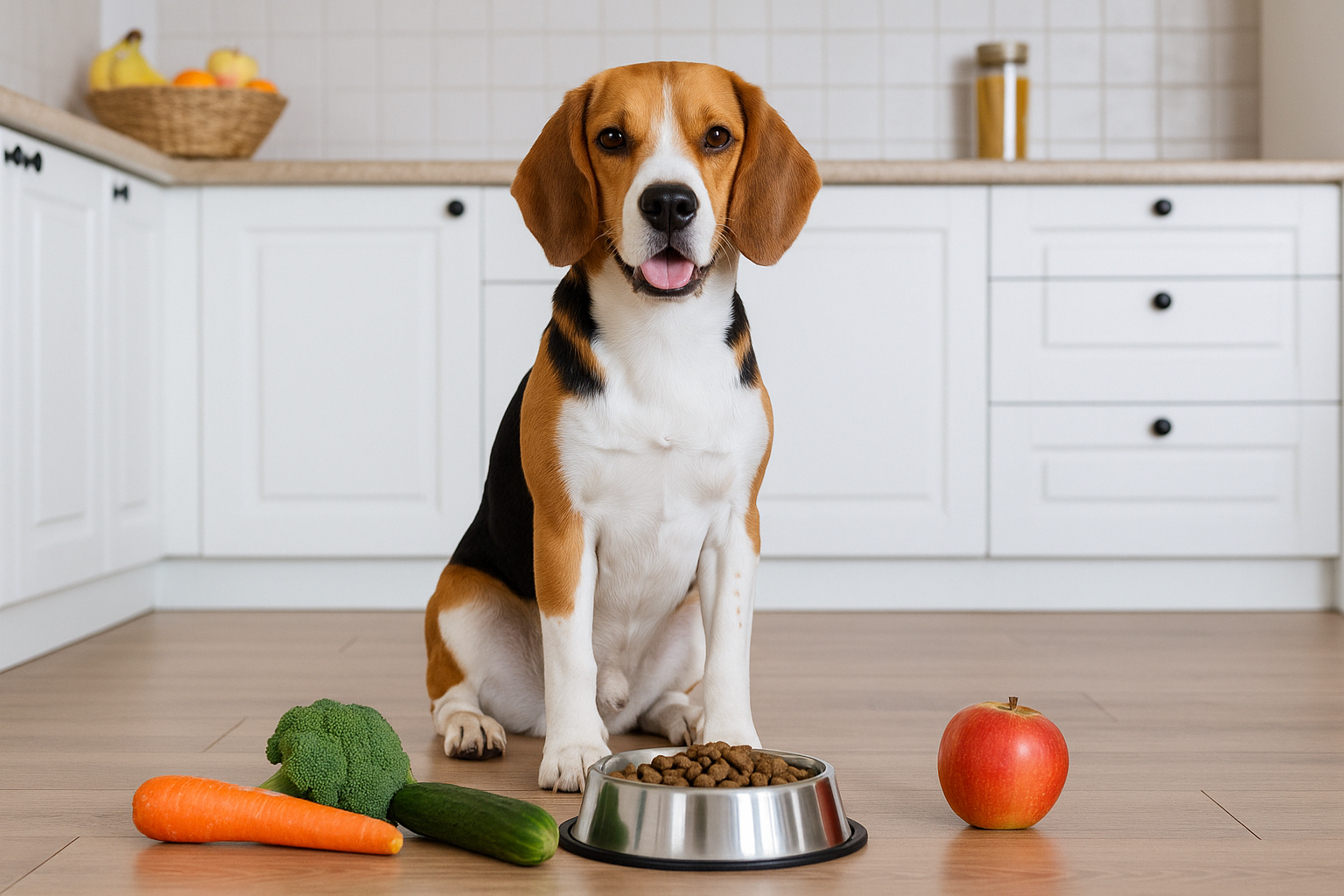
A nutritious diet is the cornerstone of good health—not just for humans but for dogs too! Providing your pup with balanced nutrition can enhance their quality of life, boost immunity, and even extend their lifespan. With so much conflicting information available, this dog nutrition guide aims to simplify things and help you make informed choices about your dog’s diet.
🥩 Dog Nutrition Guide: Essential Nutrients
Understanding your dog’s nutritional needs is key to keeping them healthy. Dogs require a balanced diet composed of proteins, carbohydrates, fats, vitamins, and minerals.
- Proteins: Essential for growth, repair, and overall maintenance of body tissues.
- Carbohydrates: Provide energy and aid digestion.
- Fats: Important for skin health, fur quality, and energy.
- Vitamins and Minerals: Support overall health, immunity, and body function.
Make sure your dog’s food has these balanced nutrients to promote optimal health.
🥦 Dog Nutrition Guide: Choosing the Right Food
Commercial dog food can be overwhelming with endless options. To ensure you’re feeding your pup well:
- Look for food labeled “complete and balanced” by the AAFCO (Association of American Feed Control Officials).
- Choose age-appropriate formulas (puppy, adult, senior).
- Consider breed-specific diets if your dog has unique nutritional needs.
If you’re unsure, consult your veterinarian for personalized recommendations.
🍎 Homemade Dog Food: Pros and Cons
Homemade meals are gaining popularity among pet owners. While homemade food allows for quality control and fresh ingredients, it requires careful planning and veterinary guidance to ensure nutritional completeness.
Pros:
- Control of ingredients
- Freshness and variety
Cons:
- Risk of nutritional imbalance
- Time-consuming preparation
Before switching, consult your vet or a veterinary nutritionist to design a safe homemade diet.
🐾 Dog Nutrition Guide: Safe Human Foods
Dogs can safely enjoy certain human foods as treats:
- Carrots and green beans
- Apples (no seeds)
- Cooked chicken or turkey
- Plain rice and oatmeal
Always introduce new foods gradually to monitor for allergies or digestive issues.
🚫 Foods to Avoid
Keep these toxic foods away from your dog:
- Chocolate
- Grapes and raisins
- Onions and garlic
- Xylitol (sugar substitute)
If your dog accidentally consumes these, contact your veterinarian immediately.
🩺 Dog Nutrition Guide: Signs of Good Nutrition
Signs your dog is thriving nutritionally include:
- Shiny coat and healthy skin
- Clear, bright eyes
- Consistent energy levels
- Regular bowel movements
If you notice changes, reassess their diet and consult your veterinarian.
🐶 The Role of Veterinary Advice
Routine veterinary visits are crucial. Regular check-ups can help detect nutritional deficiencies or excesses early, keeping your furry companion in optimal health. Qualified Pet Services always recommends consulting a vet when making significant dietary changes.
Check out our blog on pet insurance to ensure your pet has coverage for veterinary care.
📚 References
- American Kennel Club. (2022). How to Read Dog Food Labels. Retrieved from https://www.akc.org/expert-advice/nutrition/how-to-read-a-dog-food-label/
- ASPCA. (n.d.). People Foods Dogs Can Eat and Can’t Eat. Retrieved from https://www.aspca.org/pet-care/animal-poison-control/people-foods-avoid-feeding-your-pets
- AAFCO. (2024). Understanding Pet Food Labels. Retrieved from https://www.aafco.org/Consumers/Understanding-Pet-Food-Labels
- Vet Nutrition. (2023). Home-Prepared Dog Food. Retrieved from https://vetnutrition.tufts.edu/home-prepared-dog-food/
⚠️ Disclaimer:
This guide is intended for informational purposes only. Always consult your veterinarian before making major changes to your dog’s diet.


